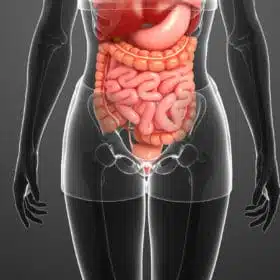Even if you have already done a lot for your Metabolism Even a balanced diet, enough sleep and hard training may not be enough to optimize metabolic activity. Accordingly, in this article we would like to present you 11 ways in which you slow down your metabolism without knowing it.
1 - You have too irregular a diet.
Since your body is a machine trimmed for efficiency, it is obvious that it also adapts to your eating habits within a very short time. This means, for example, that your organism expects a supply of energy every three to four hours and regulates its consumption accordingly. If you eat too irregularly, leaving large gaps between meals, your body will start to conserve energy because it does not know when it will be supplied with energy again. To avoid the resulting slowdown in metabolism, make sure to eat at regular intervals.
2 - You drink too little
What many exercisers forget from counting calories is sufficient fluid intake, because this not only has a direct effect on the performance of your body, but also on its energy consumption. In plain language, this means that even a slight dehydration leads to a decrease in metabolic rate. So make sure you always drink enough. Optimal in this context is a good 1 liter of fluid per 20 kilograms of body weight per day.
3 - You don't take strength training seriously enough
You should know that your metabolism is measurably increased for up to 48 hours following strength training, resulting in increased energy consumption. In addition, the buildup of lean muscle mass leads to an increase in basal metabolic rate and thus general metabolic activity. In order to benefit from strength training in the best possible way, however, it is necessary that you take your training seriously and pay particular attention to clean execution with an appropriate training weight.
4 - You sleep too long
The early morning sunlight promotes the release of activity-increasing hormones that are of great importance for the smooth functioning of the processes of the so-called circadian cycle, which, among other things, regulates your energy consumption. So if you sleep too long, you will get a corresponding amount of sunlight or daylight much later, which means that your metabolism will be a little slower and you will burn fewer calories than you could.
5 - You completely renounce carbohydrates
Avoiding carbohydrates completely is not necessarily a good idea from a physiological point of view, contrary to the popular opinion of many fitness gurus, because your muscles depend on this fuel. If you eat too few carbohydrates, your body will no longer be able to efficiently replenish your muscle glycogen stores, leading to a drop in energy levels. In plain language, this means that you should reduce your carbohydrate intake too much, even in the context of a diet, but only to a reasonable extent, in order to keep your metabolic activity as high as possible.
6 - You eat the wrong snacks
You've probably heard that eating several small snacks throughout the day is beneficial for maintaining a high metabolism. The problem, however, is that most recreational athletes focus mainly on calorie intake and pay little attention to the details, such as the amount of polyunsaturated fatty acids. These special fatty acids, which are contained in walnuts, for example, have the property of firing up the production of hormones that are conducive to fat burning. So instead of a rice cake, you should definitely reach for nuts.
7 - Your apartment is too warm
Our body uses a large part of the energy available to it to maintain the body temperature. The colder the environment, the more calories the body has to expend accordingly. An easy way to keep your metabolism going is to reduce the room temperature to 18 to 20 degrees Celsius.
8 - You use only sea salt
Even though sea salt undoubtedly tastes very good, it has the disadvantage compared to conventional salt that it contains significantly less iodine. Iodine promotes the activity of the thyroid gland and thus also the activity of the metabolism. It can therefore be beneficial under certain circumstances if you consciously add some iodized salt to your diet.
9 - You take in too many pollutants
Due to the fact that many foods today are treated with various chemicals for shelf life, it is not surprising that these residues are also found on the plate. Since this is especially the case with fruits and vegetables, you should, if possible, resort to organically produced products, since they contain significantly fewer pollutants that directly affect your metabolism. If you cannot resort to such foods, you should at least make a point of washing them properly before eating them.
10 - You lack iron
Without iron, your muscles don't get oxygen, which makes them unable to do their job. So consuming a sufficient amount of iron is essential for maintaining performance and metabolic activity. Iron deficiency mainly affects women, so eating iron-rich foods like spinach and broccoli is recommended.
11 - You are stressed
It has been scientifically proven that a permanently increased stress level leads to a decrease in energy consumption and also increases the risk of cravings. So you should always take some time for yourself to lower your stress level and keep your metabolism in the green zone.








